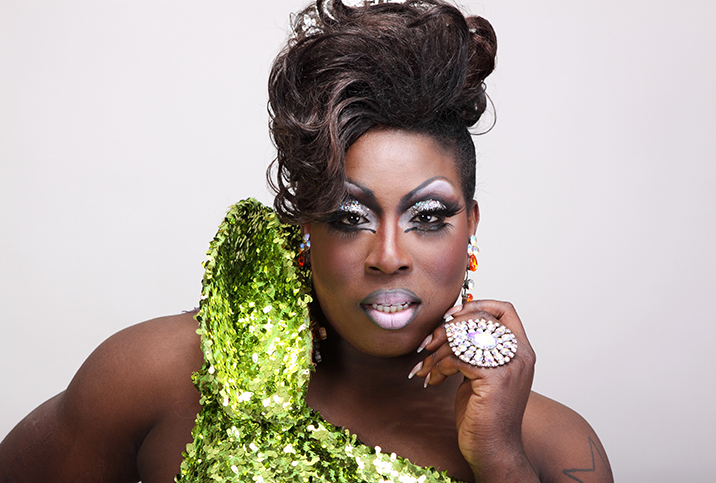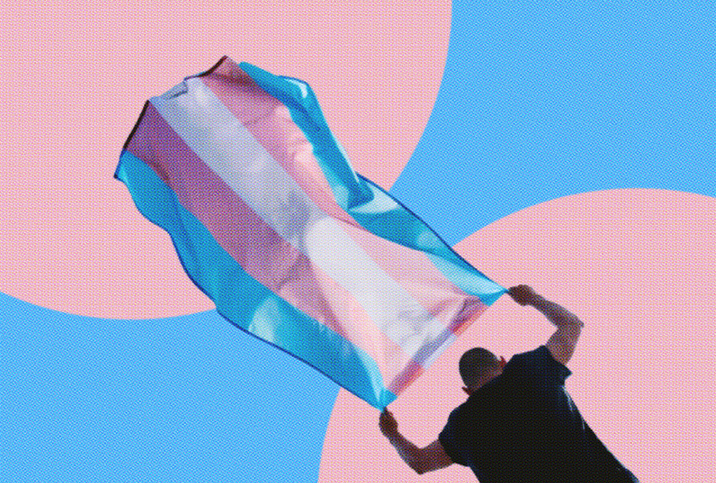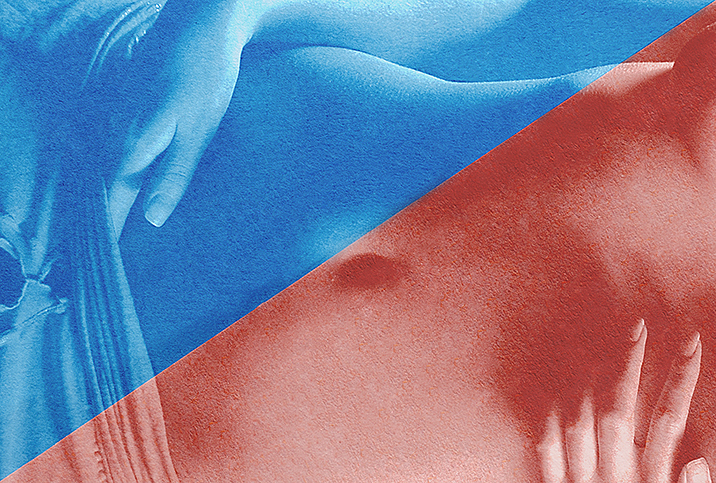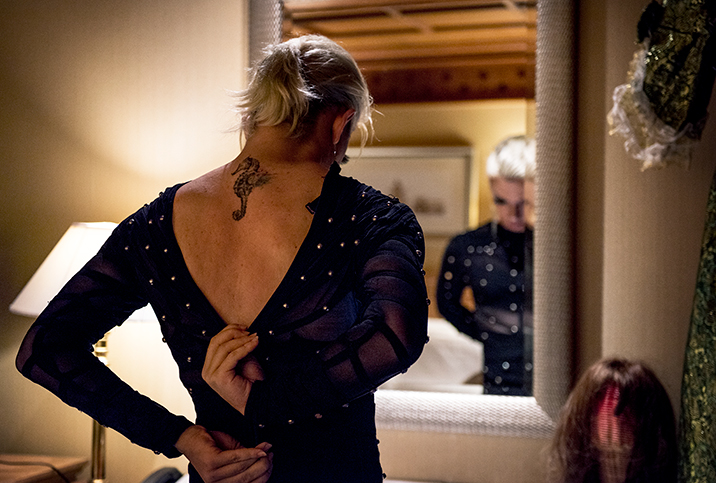Life's a Drag: How a Drag Persona Led Me to My Authentic Self
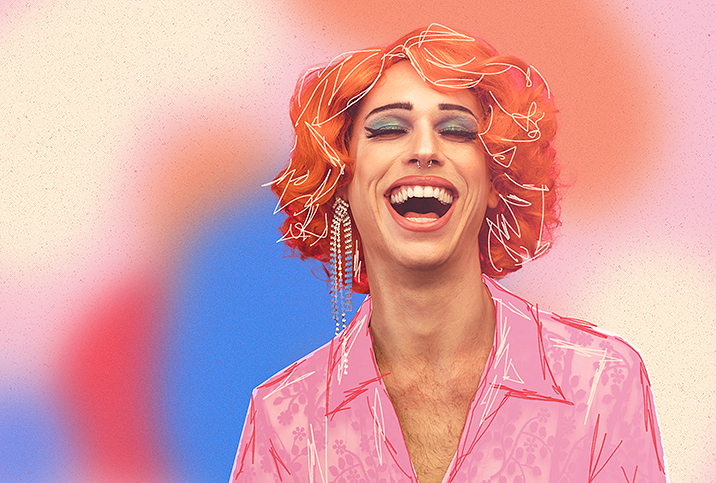
The "transgender experience" portrayed in movies, TV shows and other media is mostly a painfully shallow representation of real trans people. Like many minority groups, we are typically lumped into one type of character with no variety to our backstory. We all felt "different" from a young age, played with dolls (or Tonka trucks) and now our only priority in life is seeking medical treatment for a "mistake" at our birth and trying to hide it from everybody around us.
Transgender experiences are human experiences. Our stories reach beyond the archetype. Mine, however, does happen to be one of those archetypal stories that, unfortunately, cisgender people seem to have latched on to: That trans women are just drag queens, playing pretend.
Yes, I was a drag queen before I began to transition, but let me explain exactly what that means, rather than let assumptions fill the blanks.
I had been working as a stripper at Club Miami, a reopening of an LGBTQIA+ (heavy on the G) club, which had been popular in the early 1990s. A lot of regulars from back then were excited to return to their old domain, with updates—new, young strippers being one of them.
After a few weeks, the crowd of regulars befriended me, inviting me for pre-game drinks on nights I worked. I only accepted if they all promised they weren't trying to sleep with me. Most often, I just listened to their stories—memories from a different time, when the LGBTQIA+ community was more vibrant and less divided. Still, after they asked me questions about what it was like to be LGBTQIA+ now, we realized we shared many of the same scars from growing up "different." We tried not to dwell, though, as resilience is such a big part of who we all were.
One night, Roy, one of those regulars, grabbed me by the wrist, pulled me into his bedroom and opened his closet door. My jaw dropped. Directly in front of me was a large portrait of Roy wearing a purple sequin dress, a black wig cut into a shaggy bob, lots of costume jewelry and a cigarette attached to a wooden holder held between two acrylic nails, gaudy in length.
He said he noticed how my eyes lit up any time someone shared a story about drag shows, and it reminded him of when he was 21 and figuring out life after being put out on the streets by his folks when he came out.
"It must be so cool and a bit weird to be paid to pretend to be somebody else," I said.
"No, sweetie," he replied. "If anything, you get paid to be somebody else. Coco Diamanté embodies who I wish I could be, and I don't mean a woman. She's just…fearless."
He got a faraway look in his eyes, and I couldn't decide whether to bring him back to the present or not. I realized then I needed a bit of what Coco Diamanté represented.
After that night at Roy's, I talked to the manager at Club Miami and asked if we could host a weekly drag night to keep an old tradition alive. Luckily, he was all for it.
And it turned out, my drag identity, Adrienne Deluxe, was ready to become a fully embodied character, rather than an idea constantly bouncing around in my head.
However, two performances later the club shut down due to a lack of funds, and the excitement to ignite the local drag scene dwindled. Roy got a new job and another regular, Darryl, was moving out of town—it looked like it was all coming to a close.
Despite the apparent end, I couldn't keep the two performances out of my mind. I memorized every dance move, every song, and who said what joke and when. It almost became an unhealthy obsession, but I soon realized I wasn't just obsessed with doing drag, I was obsessed with the amount of power Adrienne Deluxe possessed.
She motivated the woman who would one day become Christy to express her truest self on a stage in front of complete strangers, and do such a good job that audiences would applaud her afterward, with a few standing ovations.
She provided self-esteem, enough to realize I wanted more for myself, and after thinking about it for a couple of months, I began hormone therapy. She put a little pep in my step and gave me the courage to smile at people on the street.
Overall, she gained my trust and helped me realize everything is going to be okay.
I still believe her.












